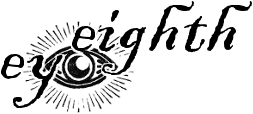5th Edition marries skills to related attributes. For example, you make a Dexterity check if you want to test your ability to be stealthy. And, if you have skill in stealth, you get to add your current proficiency bonus. As a shorthand, people will say "make a Stealth check," but there is no such thing.
In my current adventure, I strip out skills altogether. You don't have stealth skills or nature skills. However, you can note things you're trained in: athletics, smithing, cooking, hunting, etc. Think of these as actual trades that you could be trained to do. If you make an ability check that involves your training, you get to add your proficiency bonus.
 |
| A thief in the act of using espionage skills |
Where I really differentiate this from 5e, though, is that this training isn't tied to any particular attribute. Take this as an example:
Let's say you're a trained athlete. Not just naturally gifted, but you have participated in a sport with rules and structure.
Certainly you'll add your proficiency to Strength and Dexterity checks related to athletic attempts - running, jumping, climbing, etc. It doesn't matter if you're not particularly strong (say, a +0 STR bonus). Maybe you're a runner. But, in my mind, you're still an athlete, trained to use their physical gifts. So, I'd still grant you a proficiency bonus in an attempt to lift a boulder.
Taking it a step further, let's say you're kind of a dullard (-1 INT bonus). But, someone asks you who won the big yearly race in your city a decade ago. If you're a trained athlete who has spent years in that social circle, you're more likely to know that answer than someone who doesn't live that lifestyle. So, in 5e terms, I'd allow a proficient Intelligence (Athletics) check to recall that information.
NOTE: I very rarely use lore checks in my games. But, if I did, I'd handle them like this.
Another example could be training in woodcraft. You learned from a master outdoorsman how to survive apart from civilization.
Can you find food to gather? Make a proficient Wisdom check. Can you calm this wild boar? Make a proficient Charisma check. Can you climb a tree? Make a proficient Strength check. If you can find the right handholds and, through experience, make the task easier, it matters less how strong you are (though your Strength score still plays a role).
The key here is that your training enhances more than one type of check. It could enhance any related check, even if you aren't particularly gifted at that ability.

